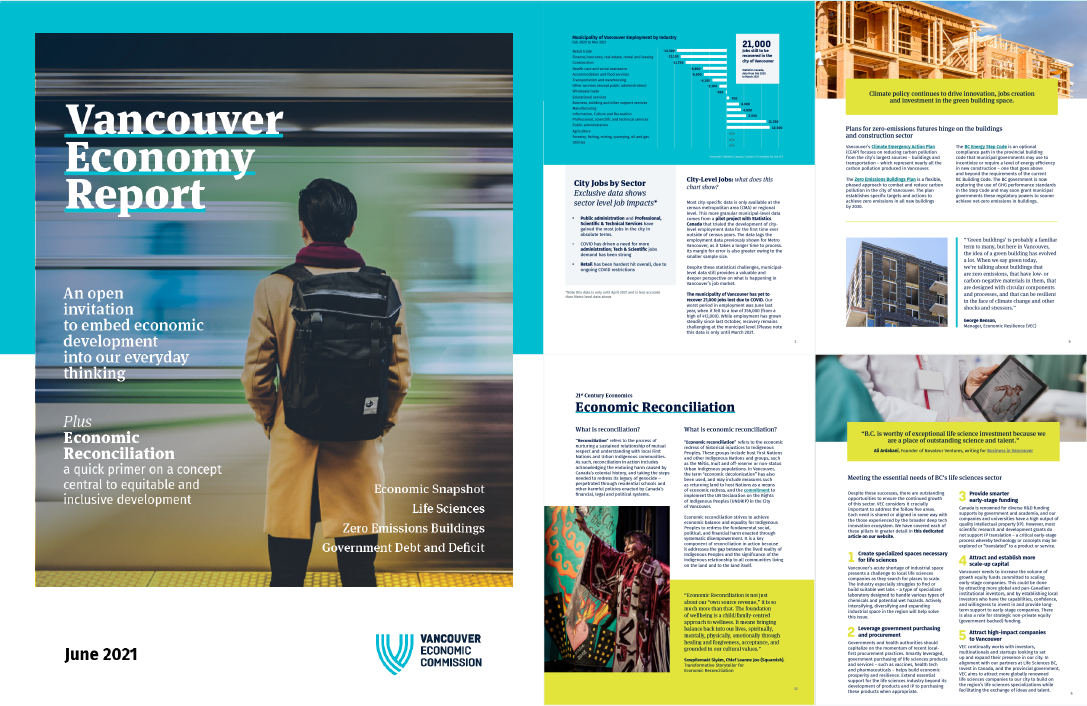Vancouver Economy Report June 2021
Embed economic development into your everyday thinking


.partners-row {
background-color: #eff3f5;
align-items: center;
justify-content: center;
}
.partners-column1 {
float: left;
width: 45%;
padding: 3em;
}
.partners-column2 {
float: left;
width:55%;
padding: 3em;
}
.partners-row:after {
content: “”;
display: table;
clear: both;
}
@media screen and (max-width: 970px) {
.partners-column1 {width: 100%;}
.partners-column2 {width: 100%; padding-right: 0em; padding-left: 0em;}
}

Published: June 23, 2021
The economy is inescapable; it forms the building blocks to our lives. This is because everything – what we eat, how we move around, how we conduct and pursue social relationships, our choices throughout our careers – is premised on our current economic model. And economic development is one of the deciding factors of whether we thrive or struggle in today’s economy.
The pandemic shone a light on the groups and workers crucial to maintaining and fulfilling economic success; foremost among them are caregivers, drivers, cleaners, front-line workers, and delivery staff. What we think of as traditional economic development has not historically centred or aided many of the groups essential for the day-to-day functioning of an economy.
COVID-19 has shown us that these workers and groups, traditionally excluded from economic development process – must be part of the decision-making to lay the groundwork for a more resilient economy.
The Vancouver Economic Commission respectfully acknowledges that it is located on the unceded territories of the xʷməθkʷəy̓əm (Musqueam), Sḵwx̱wú7mesh (Squamish), and səl̓ilwətaɁɬ (Tsleil-Waututh) Nations.